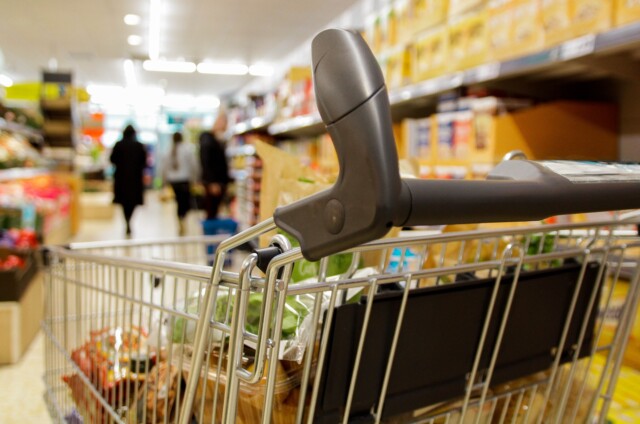THE UK’s rate of inflation has risen to 10.4% in February, in another blow to households
The rate rose in from 10.1% in January, according to the Office for National Statistics (ONS).
Inflation rose for the first time in months, largely due to the rise in household bills and groceries
This ended up being higher than the 9.9 per cent predicted by the Bank of England and economists polled by Reuters.
Higher household energy bills, food and alcoholic beverages were the biggest driver of inflation last month.
The rate of inflation had been steadily falling for the three months prior to February.
ONS chief economist Grant Fitzner said: “Inflation ticked up in February, mainly driven by rising alcohol prices in pubs and restaurants following discounting in January.
“Food and non-alcoholic drink prices rose to their highest rate in over 45 years with particular increases for some salad and vegetable items as high energy costs and bad weather across parts of Europe led to shortages and rationing.
“These were partially offset by falls in the cost of motor fuel, where the annual inflation rate has eased for seven consecutive months.”
Chancellor of the Exchequer, Jeremy Hunt said: “Falling inflation isn’t inevitable, so we need to stick to our plan to halve it this year.
“We recognise just how tough things are for families across the country, so as we work towards getting inflation under control we will help families with cost of living support worth £3,300 on average per household this year.”
What is inflation?
Inflation is a measure of how much goods and services are worth in a given period.
This means how much the price of goods, such as food or televisions, and services, such as haircuts or train tickets, has changed over time.
It is known as a “backward looking measure”, which means it indicates what has happened over the past year.
That obviously means it does not predict the future.
The rate of inflation is published each month by the Office for National Statistics (ONS).
It’s a non-ministerial department which reports directly to Parliament.
What does it mean for my money?
Falling inflation indicates that the cost of goods and services are still rising but at a slower rate.
But prices are still higher than they were.
Food and drink prices rose by 16.9% in the 12 months to December 2022, up from 16.5% in November.
Experts believe the slowdown in the rate of inflation is unlikely to stop the Bank of England from hiking interest rates once more at its meeting in March.
The move will make the cost of borrowing, including loans, credit cards and mortgage repayments more expensive.
Although it’s good news for savers as they may get better rates on their nest egg.
Do you have a money problem that needs sorting? Get in touch by emailing [email protected]
Did you miss our previous article…
https://hellofaread.com/money/major-change-to-benefit-rules-coming-in-weeks-and-thousands-will-get-payments-faster/








